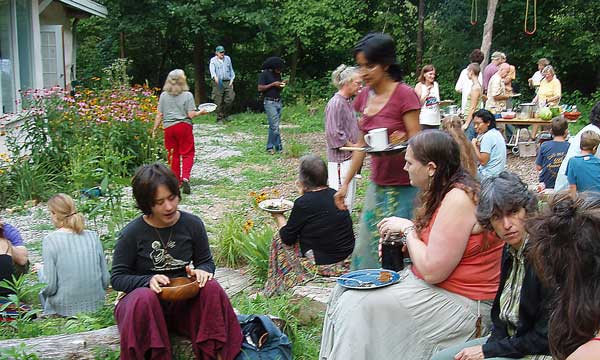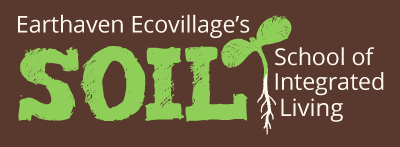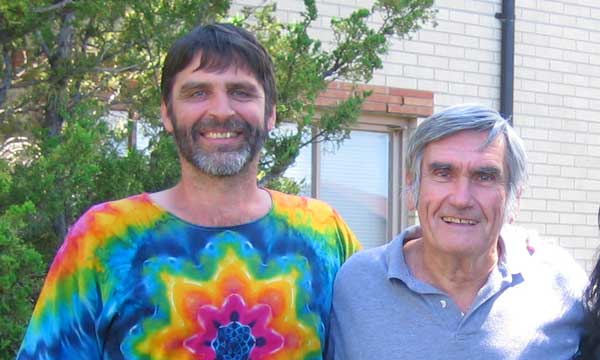Thriving Relationships and Resilient Community
We seek to plant seeds of compassion, forgiveness, love, healthy relationships, and conscious communication. To build a culture of peacemaking, community, interdependence, mutual-indebtedness, celebration, songs, and stories. We live and offer programs in the context of ecovillage live, a village model, an intentional community, and the knowledge of place.

Our need for connection springs from the inmost ground of our being. When we experience healthy relationships and a vibrant community life, we are nourished on that deepest of levels and revitalized as human beings.
Genuine connections can support each of us in becoming the most loving, confident, and creative versions of ourselves — the kinds of individuals who can truly give back to the world.
Conscious connection necessarily forms the bedrock of any healthy and truly resilient culture. And yet in mainstream culture, our deeply felt desire to connect is too often left unsatisfied and may even be exploited to drive the engine of consumerism.
At Earthaven Ecovillage, we are reclaiming our natural ability to connect with each other. We are intentionally re-learning and teaching skills that nurture the positive qualities needed for healthy relating. This part of our curriculum encompasses compassionate communication and self-awareness, peacemaking and conflict resolution, village building and other skills for empathetic relating.
“What I want in my life is compassion, a flow between myself and others based on mutual giving from the heart.”
– Marshal Rosenberg
Topics
Nonviolent Communication Village Living Earthaven Ecovillage Celebration, Songs, and Stories Compassion and Love Restorative Justice Family DynamicsNonviolent Communication (NVC) is the foundation of compassionate communication, one of the key practices in our curriculum.
NVC was developed by psychologist Dr. Marshall B. Rosenberg as a way of addressing the urgent need for effective peacekeeping strategies. His work culminated in a holistic system that views people and relationships through a profoundly compassionate lens.
According to this model, all people share some universal needs, such as the need for love, for empathy, for acceptance, for meaning, and for purpose. At any given time, our bodies signal to us whether our needs are being met or not with sensory messages called “feelings.” Everything a person does is an attempt to meet a need.
Rosenberg says that when we hear another person’s feelings and needs, we recognize our common humanity. Understanding feelings and needs within ourselves and each other is therefore central to fostering healthy relationships and communities. It is the basis for honest and empathetic connections and enables us to cooperatively explore solutions to meet all parties’ needs.
NVC teaches the skills required for integrating this knowledge into our lives — skills such as self-awareness, communication, objective thinking, and true empathy. If integrated fully, this practice has the potential to bring about deep social change.
“Our survival as a species depends on our ability to recognize that our well-being and the well-being of others are in fact one and the same.
– Marshall Rosenberg
Nonviolent Communication Resources
- Steve Torma on the Value of Compassion
- Podcast: Compassionate Communication in Community Settings with Steve Torma
- Center for Nonviolent Communication
- About Dr. Marshall Rosenberg
- Our Compassion Camp is an annual event focused on NVC, featuring classes and experiential learning.
As part of a project called Village Building, wilderness tracker and nature connection educator Jon Young has been studying connection by collaborating with traditional, village-based peoples.
Young learned that, in essence, a village is an emergent social phenomenon. Rather than simply being a shared geographical region, a village is what dynamically emerges when many “layers” of human connections are interwoven with each other. An example of a layer could be a specialist sharing their skills with peers or an elder mentoring a young person.
Crucially, a healthy village system is one that is also supported by a culture that teaches connection, as well as nature wisdom.
Within such a culture, every young person’s natural longings — to be mentored, to belong, to find their calling and thus become truly helpful — can in fact be met. Jon Young says that this is because these longings can be recognized by the wisdom and instinct of one of the village elders.
A thriving village system, therefore, makes it possible for every individual in the community to reach their full potential as a human being. And once that is achieved, a village system is also naturally self-regenerating and deeply resilient.
Thankfully, a culture of connection that leads to healthy village living can be consciously cultivated, as we have been learning at Earthaven Ecovillage. Many intentional communities and ecovillages have also been attempting to do that.

